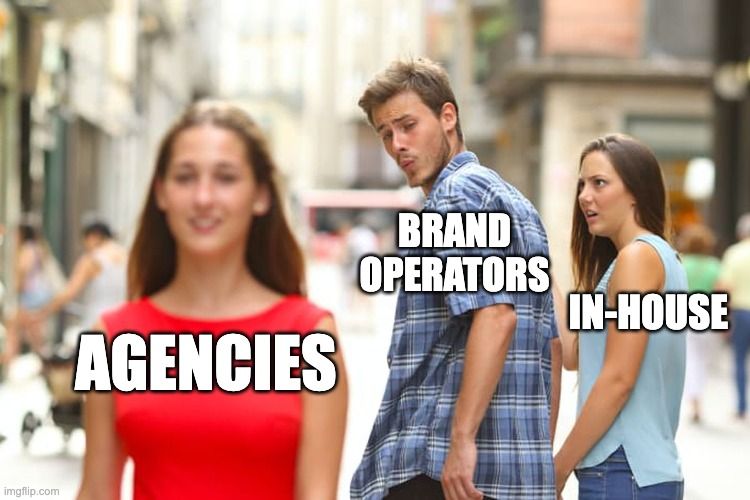Have you seen Google's announcement about no longer tracking third party cookies? It's pretty confusing, isn't it? Here is my lighthearted attempt to shed some light on what's happening, and have a little fun doing so. Enjoy!
VIDEO TRANSCRIPT
Warning: The humor of the video is DEFINITELY lost reading the transcript, so basically it's here for SEO value. Please don't actually read the transcript... watch the video!
Hey there, it’s PPCKirk, and this is your Marketing Moment.
Today’s Marketing Moment will focus on the recent news about Google no longer tracking users around the web…...what’s that?
Sorry, of Google no longer tracking users in their advertising platforms around the web……
Say again?
Of Google transitioning their tracking to the Privacy Sandbox rather than cookies to prevent users from seeing personalized ads.… still not right?
“Of users not noticing any difference whatsoever in targeted advertising to them after this change has occurred.”
What exactly is happening in this change? It’s incredibly technical, but I’ve broken it down for you in simplistic, and understandable language:
ha! Kidding. I’m really not the best one to break this down for you, but I am the one you’re still watching, so I’ll do my best.
Some in the marketing community, note that this should not be a surprise.
I for one, am *definitely* one of the many people who didn’t see the open ID initiatives as long-term viable.
Well, I don’t know what’s happening either, but it has something to do with FLOC, Turtledove, cookies, and the Privacy Sandbox, and the data geeks among us are already prepping their dad jokes.
Let’s spend a little time diving into each of these.
First, let’s look at FLOC.
Or, according to Google:
The Farm Labor Organizing Committee.
Flag Letter of Commendation?
For Love of Children
Federated Learning of Cohorts?
Actually, that last one is the one. Its.. yeah it’s that one.
What the FLOC is FLoC?
Instead of your individual browser activity being tracked by everyone with the third party cookie, you’re now assigned labels that lump you together with other people (or, cohorts) who behave the same way you do online.
Cause definitely, being labeled with people completely different from you except for some specific online behaviors when you may or may not have even, has always worked well for us in the past.
Dah, the FlOCing Blippi label again. That is the last FLOCing time I let my kids use my computer!Okay so hold on then, what’s a cookie?First, I’m absolutely not going to make a cookie joke here. Possibly the most over-done joke in all of marketing land. It’s time for the cookie joke to die a well-deserved death, and let us briefly have the funeral now.
So what is a cookie?
Well a third party cookie is what Google is killing off, these are little cute little things placed on your device by someone OTHER THAN the website in which you are visiting.
Cookies store data about you and the cookie owners can use this to show you ads in the future.
A first party cookie is still allowed by Google, that is when the site you are on actively stores data about you.
So moral of the story here, other than the cookie joke dying, is to begin collecting your own data if you want it. I mean, you don’t have to. There’s no law that you have to collect data. In fact, there aren’t even awards for that, yet.
Okay so what’s this here Privacy Sandbox?
Or in the words of Digiday “WTF is Google’s Privacy Sandbox.
”Can I check in first though, like is everyone okay at Digiday? You guys seem a little stressed? Lots of stuff to report this year, huh?
Regardless. Here is the description: “Privacy Sandbox represents an alternative pathway that Google is providing for the ad industry to take, relying on anonymized signals (that are not cookies) within a person’s Chrome browser to profit from that user’s browsing habits.”I have no idea what that just said.No but seriously, in breaking this down there are a couple of interesting points here.
First, unlike current practice, your user data never leaves your browser or device. That’s actually pretty cool, your data stays with you.Unlike that dog I had in the third grade… whatever happened to that dog. Did he not go to live with his friends on the farm??
Second, your data is anonymized and aggregated. We’re back to the FLOCing treatment. The good news of cohorts and labels is that random businesses around the web can’t follow you personally around like some sleezy guy in an alley. *shudders*
So what does this all mean for privacy?Well, the good news is that this is one step further towards your data actually becoming more private on the web. That’s a good thing! Two thumbs up.
On the other hand, since data is currency, it also means the behemoth Google is now the only one who has access to and can utilize that data for advertising, so… that’s probably not so good in the interest of non-monopolies.So, you decide if it’s good for the industry or not, but this has been your Marketing Moment.I’m PPCKirk, and may the auctions be ever in your favor.


.webp)


.jpeg)

.jpg)




